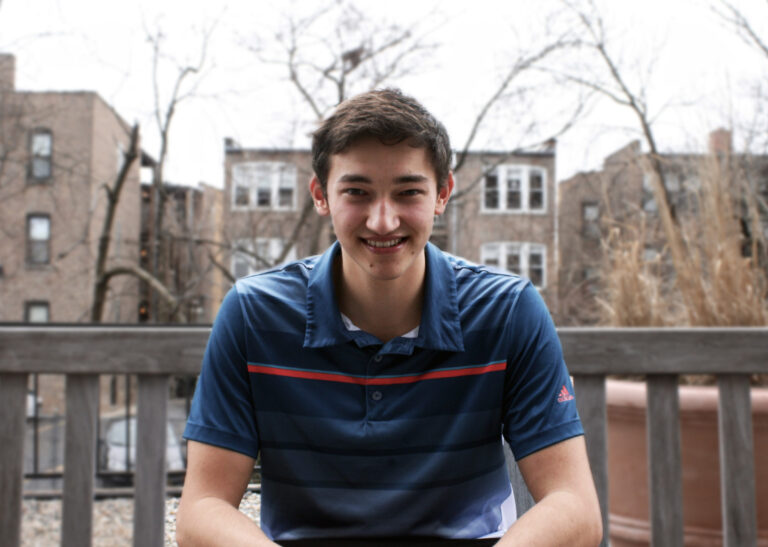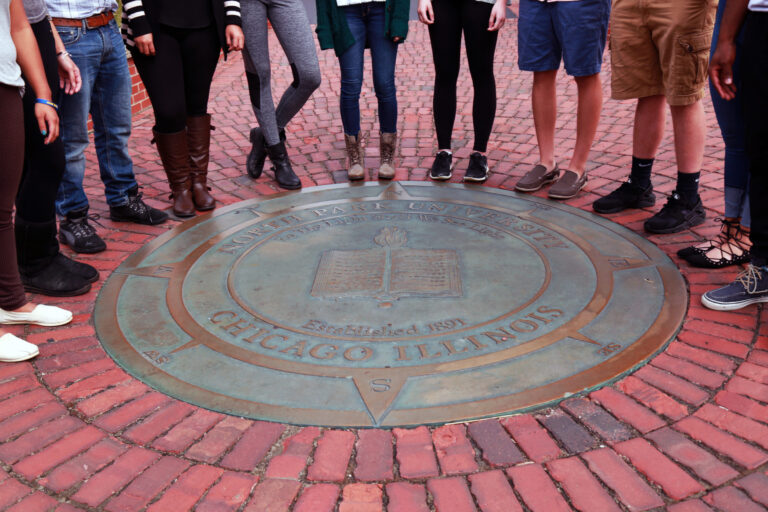This is a student blog post submitted by Stephen Nielsen, C’19. Stephen is an English major with a concentration in creative writing.

Listening to his peers in a campus rally opened one student’s eyes.
North Park University held a Black Lives Matter rally on campus back in November of 2016. The first of its kind on campus, it highlighted injustices faced by students of color. Students stepped up to the mic and told the stories of their lives and the lives of their loved ones.
Having grown up in Denmark for most my life, I’ve been ignorant of the challenges facing people of color in America, and of the privilege afforded to me because of the color of my skin. I heard stories, saw the news, but never experienced it first-hand. I’m not oppressed, and I don’t find myself an oppressor, so it doesn’t affect me. I could watch from the sidelines, I could claim my ignorance, and chalk it up to my time spent in a foreign country; it’s not my problem. Emily Bourne, seminary student and resident director of Ohlson Hall says otherwise. “Oppression affects all of us whether we realize it or not; whether conscious of it or not. To hear another people group cry out and say their lives seemingly don’t matter; this should be something that we pay attention to.”
Although the civil rights movement made great strides for racial justice, profiling is still prominent in American culture. Black Lives Matter intends to expose the injustices facing black Americans today. “We’re not walking around in chains, but we still have a lot of things that are causing us to be held down in bondage, and to still have these systems of oppression,” remarked Jacqueline Strapp, director of diversity at North Park University.
I finally understood why racial problems still exist as I stood in Anderson Chapel, as it overflowed with an arresting array of faces. Why had so many entered this place of raw peace and genuine expression, gathered in the name of Christ? “Because change doesn’t happen without your participation, because it shows your support to those who are suffering, and especially because we’re a diverse community, it’s also empowering yourself to learn how to make change,” said Michael Emerson, Provost, North Park University.
There is work to be done, but making change isn’t complicated. Stephen Kelly, worship arts coordinator for University Ministries at North Park University says that “for there to be racial reconciliation it has to be a re-humanization.”
“Even if you don’t agree,” Strapp said, “you should at least listen,” because ignorance doesn’t solve problems. Choosing to ignore the social and racial injustices still affecting black people across the country won’t make the movement stop. I’m not saying that you must become an activist, I’m not saying that because these issues have deeply affected me, that they should affect you too. However, like Strapp told me, “be educated so that you can be informed when you choose a side. Don’t choose because it’s always been this way for you. Choose it because you have heard both sides, and understand why you are the way you are.”
The stories of injustice I heard from those who spoke and those I interviewed were horrible and troubling. I couldn’t believe what was happening. I want to change something, I want to help the current change happening across America; the change on campus. The opportunity to participate in Sankofa, a University Ministries led trip, arose and I accepted.
The account of my Sankofa experience will be the topic of a future post.


